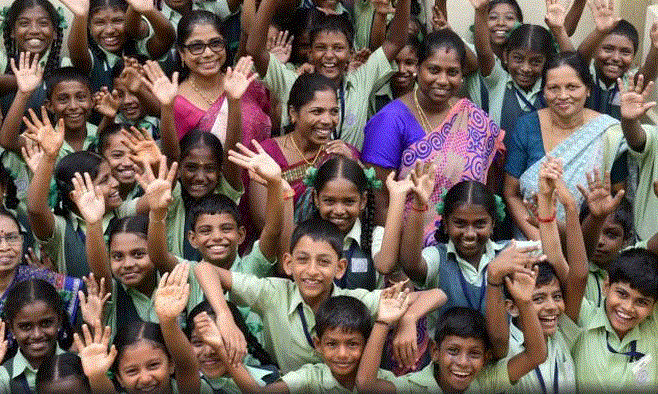Keep in touch With Us
Enquiry Form
Feedback Form
Contact Us for summer camp

Enquiry form for Parents
We can help you

Leave a Feed Back
Thank you for helping us improve

Contact Us for summer camp
Thank you for helping us improve

Devi Academy Senior Secondary School, Valasaravakkam
0
Followers

CBSE

Posted on 4 Sep 2014
Out of syllabus
When teachers start careers, they hope to teach. When they end theirs, they hope to learn more. Because, along the way, students turn them into learners.
From students slow on the uptake, they learn how to be patient. From the sensitive ones, gentle. From the naughty ones, they learn how to grin and bear it.
The results of such learning are always amazing. Good teachers become better. More useful. More forgiving. More sacrificial. More self-effacing.
A key lesson is that knowledge is no respecter of age. For example, last year, students of Devi Academy taught their teachers computer skills through an ‘I Teach’ programme by NIIT.
“Students are more tech-savvy. And what’s wrong in learning from them? When we want to make a power-point presentation, students from the senior classes will volunteer. ‘Ma’am, I’ll do it for you!’ When they do it, the presentation is far more innovative,” says Malathy Sreenivasan, principal, Devi Academy, Valasaravakkam.
A teacher who has taught chemistry for well over three decades, Mrs. Karunakaran (as she likes to be known) says she has learnt to appreciate humour wherever she sees it. It brightens up the classroom. It has turned up a few times on the answer sheet.
“To a question about the orbit in an atom, a student replied, ‘It’s chewy. It makes your teeth sparkling white.’ I laughed. However, I called the student and told her the right answer. On another occasion, a girl gave an interesting definition for mole, a unit of measurement in chemistry. The answer read: It’s a birthmark.”
Gone are the days when students shuddered at the approaching steps of a teacher. Now, they want to meet their teachers on a more level ground. And they manage to. They are quick to point out a teacher’s idiosyncrasies.
Jayanthy Srivardhan, an English teacher for around 25 years, who now teaches the subject to students attempting competitive exams, recalls an incident.
“An economics class was winding up. As the teacher was walking out, I was walking in for my English class. The students cheered him as he left. This economics teacher takes pride in his handwriting. He assumed the applause was for how well he had written on the board. He told me so, as he left. I learnt from the students they were laughing because he had scored a ‘hundred’. During the class, he had used the filler expression, ‘you know’, over a hundred times. And I had taught these students not to use fillers in conversation,” laughs Jayanthy.
Students outgrow schools and colleges. They marry, pursue careers and go in search of greener pastures. The bond between teacher and student however stays. Sometimes, when they return to their teachers, the laughter is gone. There is only distress. Such situations offer lessons in emotional communication. “Sometimes, there will be a knock at my door at 10.30 p.m. The teacher has to ensure that when the student leaves, he or she feels lighter,” says Jayanthy. When one of her students was diagnosed with cancer, she was there to offer hand-holding support.



All Comments(0)